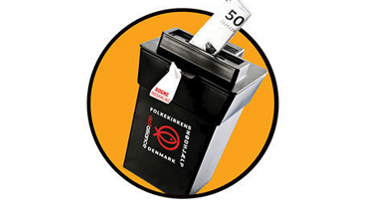A review of 68 charities by the collection board Indsamlingsnævnet shows that of the 857 million kroner in charitable contributions collected in 2014, some 206 million was eaten up by expenses.
Charities must report to Indsamlingsnævnet to be allowed to raise money in Denmark.
In 2014, nine organisations actually spent more money than they raised.
The group Danmarks-Samfundet, for example, spent nearly 50,000 kroner.
“The figures are similar to previous years,” Danmarks-Samfundet told Metroxpress. “The money was used on delivery costs, flags and banners handed out on Valdemars Day.”
READ MORE: Danes giving more to charity
Charity gets expensive
In Sweden, an organisation must cease collecting if its expenses exceed more than 25 percent of its proceeds three years in succession.
However, many Danish groups exceed that limit, including Blå Kors, Greenpeace and WSPA.















